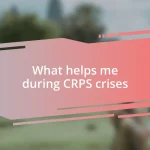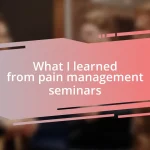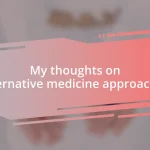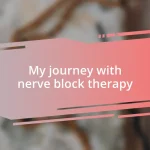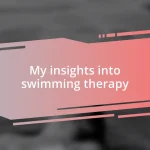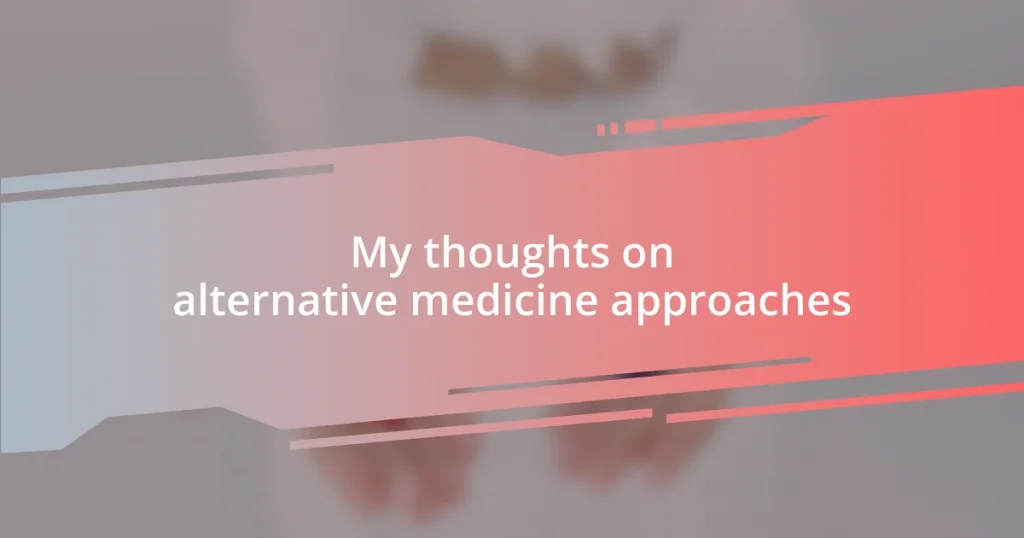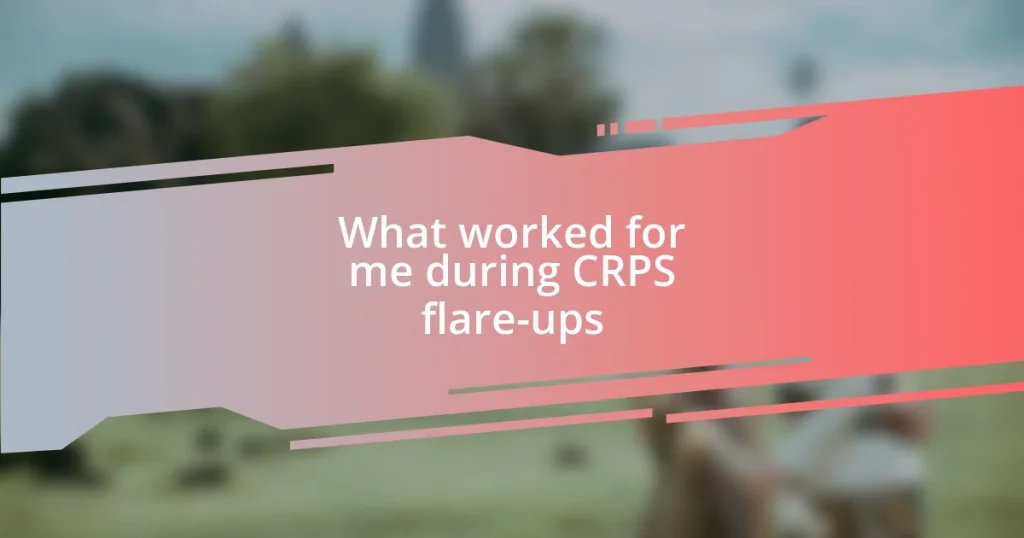Key takeaways:
- Alternative medicine practices, such as acupuncture and herbal medicine, offer diverse healing methods that can enhance wellness beyond traditional therapies.
- Evaluating the effectiveness of these treatments often relies on personal experiences and subjective outcomes, highlighting the importance of individual resonance with different therapies.
- Safety and quality are critical considerations in alternative therapies, as natural remedies can interact with medications and the competence of practitioners may vary.
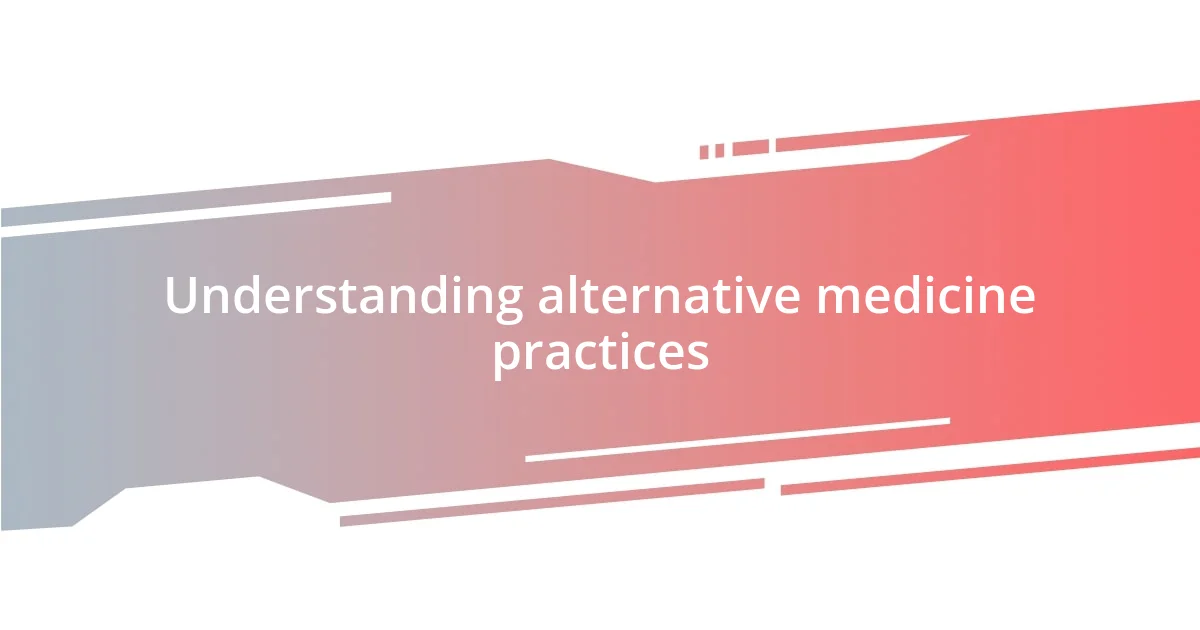
Understanding alternative medicine practices
Alternative medicine practices encompass a wide variety of methods that can sometimes feel foreign to conventional medical approaches. I remember the first time I tried acupuncture; the idea of needles being placed in my skin was daunting, yet I found myself pleasantly surprised by the sense of calm and relief I felt afterward. Isn’t it fascinating how our bodies can respond so differently to various treatments?
Many people explore alternative medicine after they’ve exhausted traditional therapies, seeking a more holistic approach to health. When I was dealing with chronic headaches, I began to delve into herbal remedies and mindfulness techniques. It was an eye-opening experience. The connection between my mind, body, and the natural world became much clearer, and I found solace in the rituals of daily herbal tea blends. Have you ever considered how the energy of the earth could aid your wellbeing?
Understanding these practices often requires stepping away from a purely scientific viewpoint and embracing a broader perspective on healing. I often find myself pondering the emotional aspect of healing. How do we define wellness beyond just the absence of disease? Engaging with alternative medicine prompted me to reflect on my overall wellbeing in a more profound way, making me realize that healing can often be just as much about the journey as the outcome.
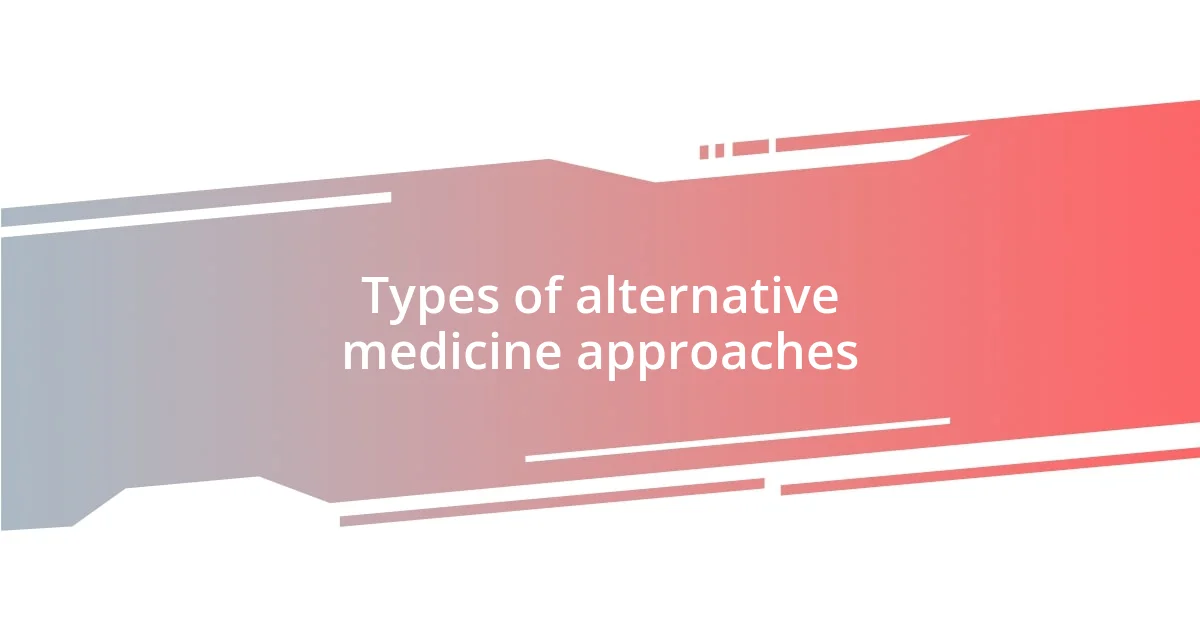
Types of alternative medicine approaches
There are several types of alternative medicine approaches, each with its own unique methodologies and philosophies. For instance, during my time exploring holistic practices, I found an incredible variety of options—from energy therapies to bodywork techniques. This diversity allows individuals to find what resonates with them personally, which can be so impactful for one’s healing journey.
Here’s a quick rundown of some popular alternative medicine approaches that I’ve encountered:
- Acupuncture: Involves inserting thin needles into specific points on the body to balance energy flow, a practice I never imagined would leave me feeling so rejuvenated.
- Herbal Medicine: Utilizes plant-based remedies to treat various ailments, which I embraced when I turned to chamomile for relaxation.
- Chiropractic: Focuses on aligning the spine to improve overall health—I’ve experienced profound relief with just a few sessions.
- Yoga and Meditation: Practices that intertwine physical activity with mindfulness, where joining a local class transformed my perspective on stress management.
- Homeopathy: A system that employs highly diluted substances to trigger the body’s healing processes, though I remain cautious about its efficacy after a mixed experience.
- Naturopathy: Promotes natural and non-invasive methods, where the emphasis is on treating the whole person, something I truly value.
Each of these approaches offers its own flavor of healing, inviting us to explore beyond the confines of traditional medicine. It’s like embarking on a personal quest, seeking out the therapies that truly echo in harmony with our bodies and minds.
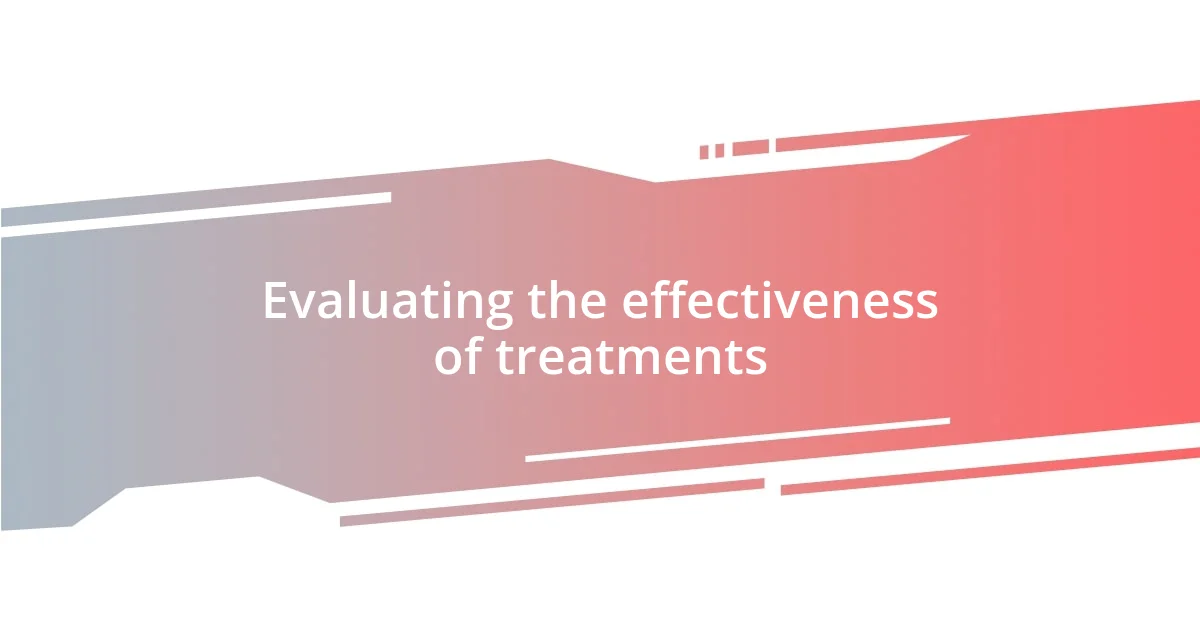
Evaluating the effectiveness of treatments
Evaluating the effectiveness of alternative medicine treatments can be a bit of a journey in itself. I’ve often found that personal experiences play a significant role in this evaluation. For instance, after trying out a few different remedies for my anxiety, I noticed a profound difference when I began incorporating mindfulness practices alongside. The gentle breathing exercises felt less like a chore and more like nurturing a part of myself. It’s amazing how sometimes the treatments that resonate most personally can lead to the best outcomes.
One challenge I encountered while assessing treatments was the lack of standardized methods for measuring success. Unlike traditional medicine, where outcomes can often be quantified, alternative treatments might rely more on subjective experiences. For example, my attempt at aromatherapy with lavender was subtle; it wasn’t a “miracle cure,” but the calming scent transformed my relaxation routine and made my stress a little easier to handle. Have you noticed how subjective feelings can still play a crucial role in healing?
The balance between traditional evaluations of effectiveness and personal anecdotes can create an interesting dynamic. It’s important to keep an open mind, acknowledging that what works for one person may not work for another. In my case, trying different approaches allowed me to embrace a broader view of healing that transcended mere symptom relief. After all, the effectiveness of a treatment may lie not just in its ability to work, but also in how it makes us feel whole.
| Method | Effectiveness |
|---|---|
| Acupuncture | Subjective relief from pain and anxiety |
| Herbal Medicine | Varies; can support relaxation or digestion |
| Yoga and Meditation | Improvement in stress management |
| Chiropractic | Relief from physical discomfort |
| Homeopathy | Mixed experiences; varies greatly |
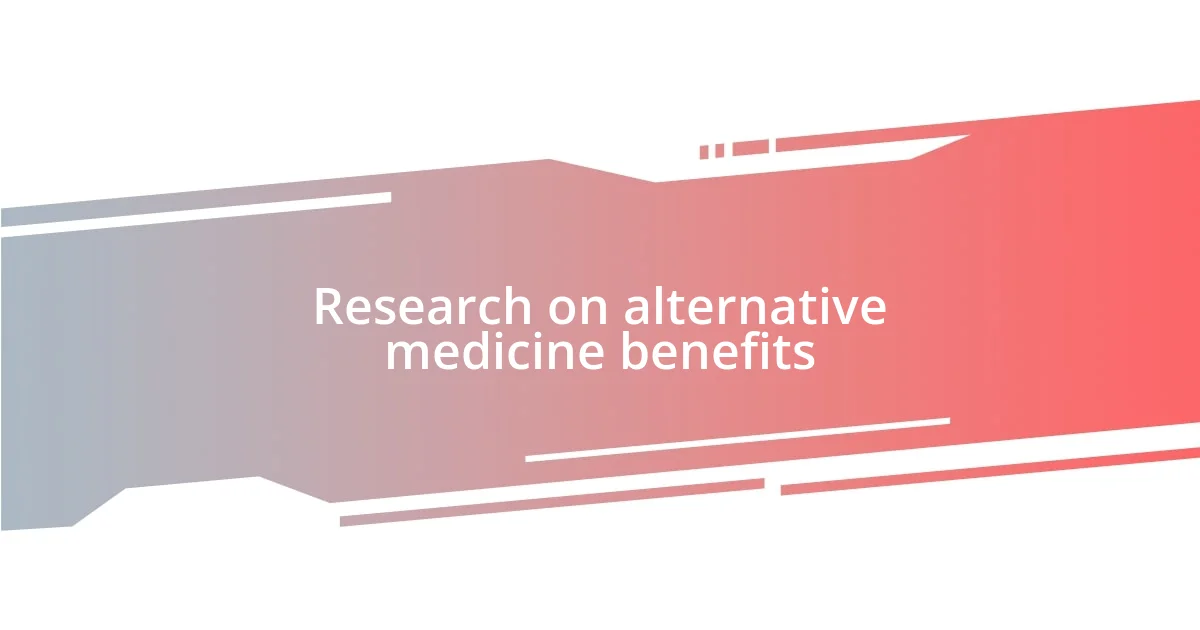
Research on alternative medicine benefits
Research into the benefits of alternative medicine often reveals surprising insights. When I first started exploring these methods, I stumbled upon a study examining the effects of acupuncture for chronic pain relief. The results were compelling; many participants reported not just reduced pain, but also improved emotional well-being. I remember thinking, can something as simple as tiny needles make such a difference? It turns out, yes, for many, it can.
Another intriguing piece I came across focused on herbal medicine, specifically chamomile for anxiety. This resonated with me because of my own experience brewing chamomile tea on particularly stressful nights. The research highlighted that subjects who consumed chamomile regularly exhibited lower anxiety levels compared to those who didn’t. Isn’t it fascinating that nature can provide such comforting solutions? It certainly made me appreciate the little rituals that have a meaningful impact in my life.
In addition to these findings, studies on yoga underscore its profound effects on mental clarity and stress reduction. I can personally vouch for this, as I have often left a yoga class feeling renewed, almost as if my worries had dissolved into thin air. It’s not just about the poses; it’s about creating a space for self-reflection and mindfulness. How often do we take a moment to breathe deeply and simply be? Perhaps that simple act is where the true healing begins.
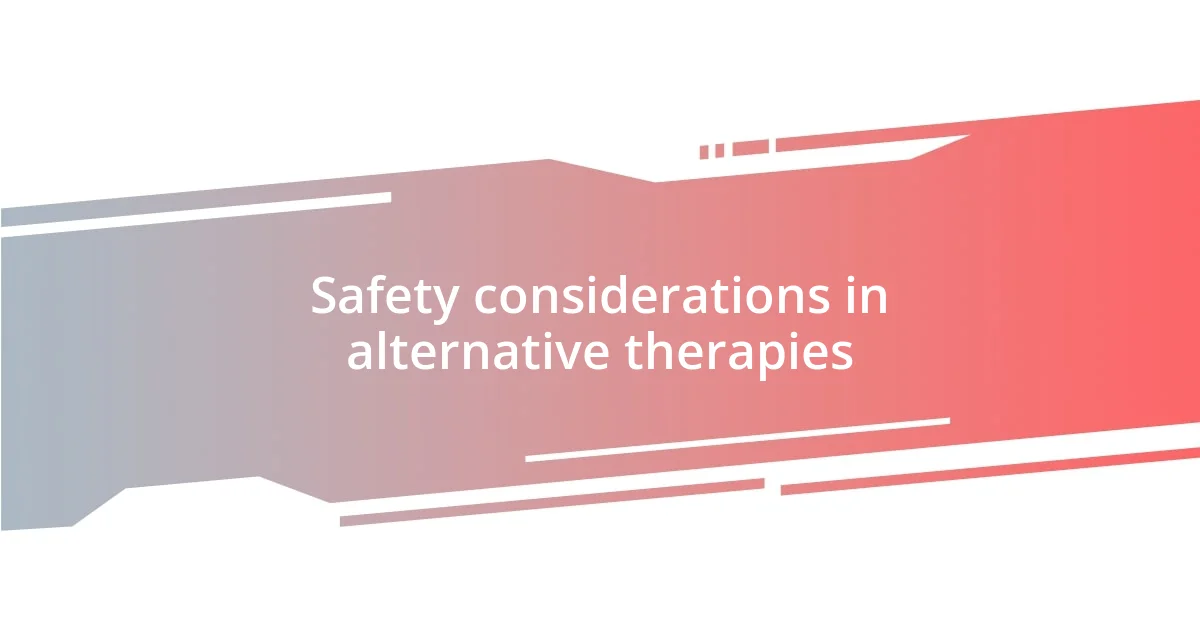
Safety considerations in alternative therapies
When diving into alternative therapies, safety should always be at the forefront. I once had a friend who enthusiastically tried an herbal supplement without doing much research. Unfortunately, it interacted poorly with her prescription medications, leading to some serious side effects. This experience reminded me that even natural remedies can be potent and have unintended consequences. Isn’t it eye-opening how something that feels harmless can sometimes pose risks?
I’ve also found that practitioners of alternative medicine may not always have the same level of accountability as conventional healthcare providers. For example, I visited a wellness center where a herbalist recommended a potent blend of herbs without thoroughly assessing my health background. While her intentions were good, it made me realize how crucial it is to work with professionals who prioritize patient safety. This highlights the need for transparency and open communication in any treatment plan.
Another aspect to consider is the quality of the products used in alternative therapies. I’ve encountered times when the essential oils I bought from a local shop were not properly diluted, leading to skin irritation. This made me appreciate the importance of sourcing from reputable suppliers and ensuring that what I’m using is safe and well-regulated. Have you ever thought about where your wellness products come from? Being informed allows us to navigate the world of alternative medicine with confidence and care.
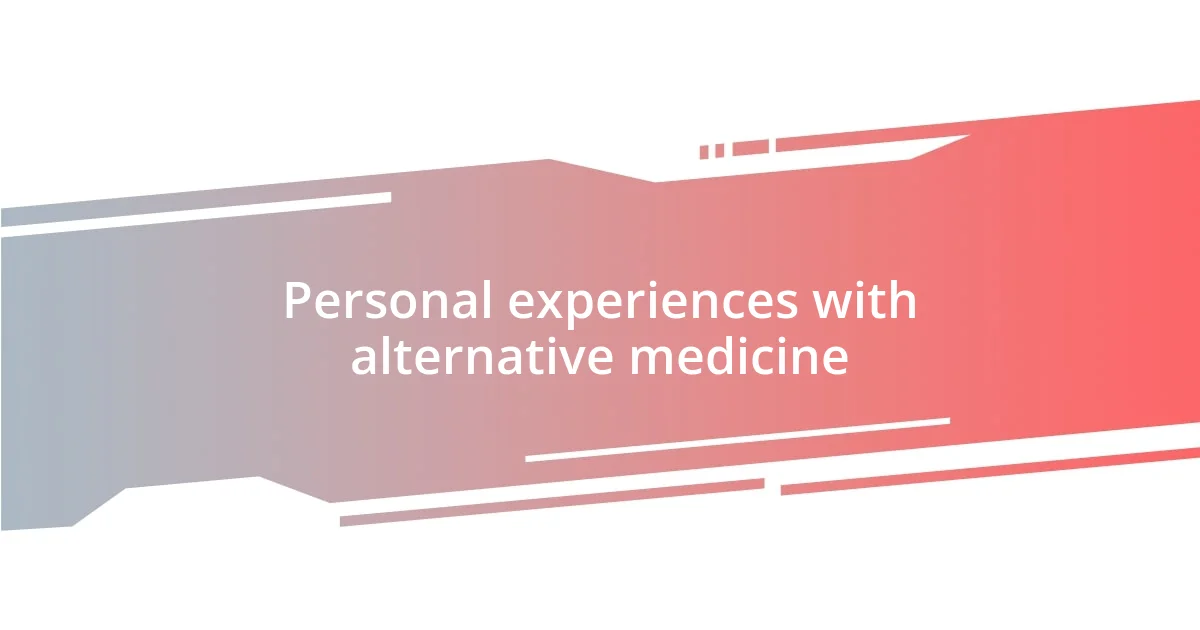
Personal experiences with alternative medicine
Exploring alternative medicine has often led me to unexpected outcomes. I recall a time I tried Reiki therapy, feeling a mix of skepticism and curiosity. During the session, I felt an overwhelming sense of calm wash over me, as if the stress that clung to me was lifted by invisible hands. Have you ever experienced something that challenged your previous beliefs about healing?
In another instance, I attended a meditation retreat that promised emotional wellness through mindfulness. Initially, I struggled with the quiet and stillness; my mind raced with thoughts to-do lists and worries. However, by the end of the week, I found a surprising clarity and emotional release, akin to shedding a heavy cloak. It dawned on me that sometimes, we need to step away from our hectic lives to truly reconnect with ourselves. Isn’t it amazing how a bit of silence can lead to profound personal revelations?
These experiences, while deeply personal, also opened my eyes to the community surrounding alternative medicine. I remember chatting with fellow attendees at a holistic health expo, each sharing their journey. It was both enlightening and comforting to hear stories of triumph and healing. Isn’t it reassuring to know we’re not alone in our search for healing? It just goes to show that alternative approaches can foster connections that enrich our understanding of wellness.



